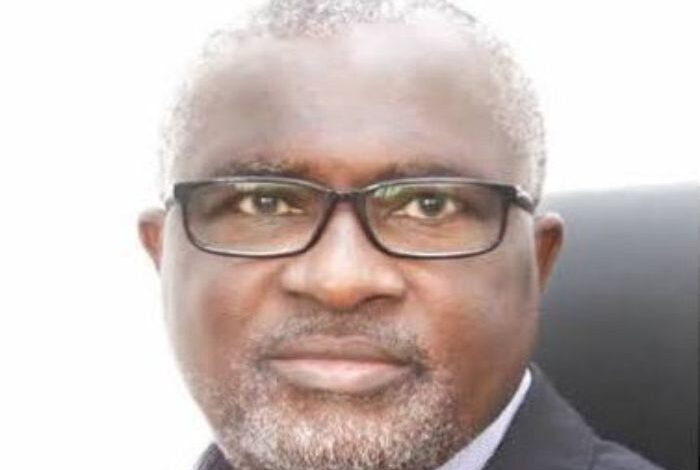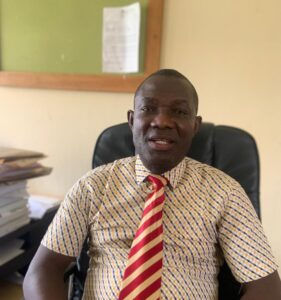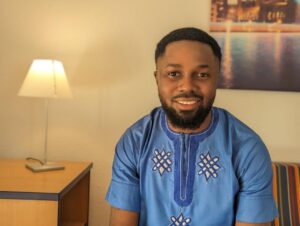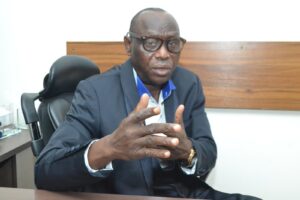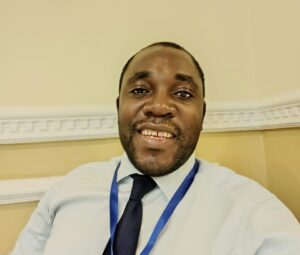After 45 years as a staff of The Punch Newspaper, during which he was Managing Director and Editor-in-Chief for 27 years, Mr Ademola Osinubi will on April 30 retire from the company which he joined as a reporter in 1976.
In this excerpt from an interview in Nigeria Media Leaders: Voices Beyond the Newsroom, Volume two, edited by Richard Ikiebe, published in 2015, Osinubi recalls how he became a journalist, journalism practice and his early years in The Punch, quality of media training now and other issues.
Why journalism and not anything else?
When I left Ijebu-Ode grammar school, I knew from the beginning that I was very good with languages, literature and arts. I wasn’t cut out for the sciences. Our mathematics teacher then was very tough, bordering on wickedness, and each time we had lectures in mathematics, we would wish he never came. I managed to do two science subjects for school certification, which I passed very well in 1972.
I wanted to join the military. I loved guys in uniforms. I wanted to have a palace in the Nigerian Defense Academy (NDA). It was tough, but I was ready for it. I didn’t want to go to university for anything. I wanted a career in the military, but it wasn’t forthcoming. Along the line, I saw an advert that said the Nigerian Institute of Journalism was running a Diploma in Journalism programme, and that the application was for the second set of the school established by the International Press Institute.
So I got into the short-term sub-editing programme. Funny enough, it wasn’t difficult for me to cope. Thereafter, I went in for the diploma and forgot about the military. I finished my diploma in 1976, just when The Punch, which had been in existence since 1971 as a weekly newspaper, was about to go daily and was looking for additional staff. The Punch employed me as a reporter as soon as I was out of school. Trained reporters were in high demand then. I worked in the Sunday Punch for two or three editions; the paper was to go daily on October 1, but it wasn’t until November 1, 1976, that it finally did.
READ ALSO: The Punch: Joseph takes over as MD/EIC, Osinubi retires
Can you compare the training you received with what obtains in today’s institutions?
I’m not in school now, so I won’t know the structure, the content, and the efficacy of the kind of training they give them at the moment. But if the products of such schools are anything to go by, I think that there is a gulf in-between. Richard Ikiebe was also in NIJ, I think he was the third set. And you can imagine Richard was also a star in the Daily Times in those days. I did my vacation job at the Daily Times and then got employed at The Punch. We were all-stars all over the place then.
We had everything practical; you would go to different places to cover the news. We did broadcasting, public relations, news reporting script writing, development studies, economic development, sociology, and political science. Professor Oladele Taiwo who wrote many English textbooks took us in English. Somebody else took us in Literature. One Mr Lay who later became Dr Lay, an Australian who was the director of the school, took us News Reporting. Professor Adedeji took us in Economic Development. Dr Oluworongbo took us to Press Law, and Mr Moyo, a Kenyan, took us in Broadcasting.
We were fully trained as journalists, and we could move anywhere – press or broadcasting. If you compare that with the kind of people that come in here [ at The Punch] now, even take it beyond the diploma level to the university level, you would have to do a whole lot of re-training, including employing people who are good in other fields and then subject them to rigorous journalistic training. After a while, we didn’t employ anybody if they did not have a second class upper or a First class in any discipline, after which we train them in journalism. That’s how we have been able to get good hands working here, and I’m sure the same thing happens in many other organisations.
What was Journalism like when you started as a young reporter?
Journalism was beautiful! Uncle Sam (Amuka), the publisher of Vanguard, was our managing editor then the Punch. Uncle Sam was a crazy fellow; his pen name was Sad Sam.
He sat in court every Thursday or Friday over every reporter’s assignment as we prepared for the Sunday paper. Some scripts he would read, tear up and throwback at the reporter, saying, “Nonsense! Is this the best you can produce in a week?” It was the moment of the week we all dreaded. He would say to a reporter,” My friend, this is not Journalism! You are not fit for this job, and if you know you can’t do it, there is nothing wrong with that. If you are best at carpentry, go into carpentry.”
When you turned in a script, you must be sure that you have done your best, but God help you if your best wasn’t good enough. But in his best of moments, Uncle Sam would call you and simply say “Oh my friend, why didn’t you look at this angle? Why didn’t you do this?” We were brought up in that kind of culture.
We were brought up in that kind of culture, and we had very smart reporters. One of the best reporters that this country ever produced, not in terms of the stories or the exclusives, but in terms of writing, was Sola Odunfa (who worked for BBC). He was the editor of The Punch when we went daily. Sola was good! He would take your stuff, rewrite it, and you would love what he would turn your story into. There was Ajibade Fashina-Thomas, the first editor of The Sunday Punch. There were very good sports reporters, very good features and editorial persons – you had no choice but to like them.
Did you have mentors?
That’s tough! Uncle Sam (Amuka), as hard as he was on us, I can’t ever forget that he taught us diligence, competence, style, accuracy and self-assurance. There are people whom history has recorded as having done very well, and the only opportunity we had of meeting them was to read about them and maybe you got inspired by what they wrote. People like Peter Enahoro, Segun Osoba, Dr Femi Shonaike and Gbolabo Ogunsanwo.
I particularly enjoyed (Gbolabo’s) writing in those days; he was a fantastic columnist. Go and pick editions of the Sunday Times in the 70s. Those were the stars. Take them to any part of the world; they would remain stars, given the fact that in this kind of environment we lack all that is required to perform optimally as journalists.
Andy Akporugo wrote fantastic columns in those days, of course, if you were not educated up to a point you hardly would be able to understand what he wrote about. There were so many of them. Solana Olumhense too was very good, a good features writer.
For copies of the book,Nigeria Media Leaders: Voices Beyond the Newsroom contact Adenike Abati call +234 708 225 5721
